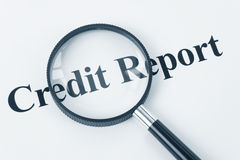Understanding Credit Reports

Understanding credit reports is very important to consumers and Certified Identity Protection Advisors who help their customers verify their personal and credit information in order to detect and resolve errors and identity theft. It is recommended that credit reports are reviewed frequently or at least annually to discover unauthorized transactions or incorrect entries. It is possible that credit reports contain erroneous information whether it was reported by companies or entered by the consumer agencies by mistake which can also damage a person’s credit worthiness. Regardless of whether the credit report is hit with identity theft or errors, such cases must be discovered and resolved as soon as possible. Understanding credit reports and their various components is key to an effective credit report review and resolution of any errors and fraudulent transactions.
Credit reports often include many pieces of personal and credit information and although they may differ in format, categorization and sequence depending on the consumer reporting agency, the reports are intended to provide the credit report users sufficient information for making credit decisions. It is in consumer, business, and credit reporting agency best interest that the credit report information is accurate and therefore, consumers are part of this important process and must review and validate the credit report contents either alone or with the help of their CIPAs.
As mentioned, it is recommended that credit reports are reviewed frequently but at least annually. It is also recommended that an automated credit report monitoring service is leveraged to receive notification of any credit report changes immediately so that the changes can be verified and disputed if necessary as soon as possible. Credit reports with incorrect information may unfairly affect a credit report owners borrowing capability and cost because credit decisions are made based on past credit history which the credit reports contain and a high risk consumer can be inflicted with higher interest rates if a credit line is granted. Therefore, understanding credit reports is critical for discovering errors and suspicious activities.
Understanding Credit Reports Categories
As mentioned, credit reports may differ in format and sequencing of information categories, however, most credit reports consolidate information in four groups:
- Personal information,
- Public record information,
- Credit account information, and
- Credit inquiries.
Personal Information
This is pretty self-explanatory, but this section generally includes:
- Your name and aliases
- Social security number
- Date of birth
- Employment data
- Current address
- Previous address
Public Record Information
Open legal issues related to financial accounts are listed in this section. Some credit reports may also include the estimated date of removal.
- Bankruptcies
- Liens
- Judgments
- Wage garnishments
Credit Account Information
Below is the main section of credit reports related to existing lines of credit. Collection accounts are listed here.
- The status of the account: current/open, closed, charged-off (sent to collections)
- The responsibility of the account: Joint or individual
- Account balance
- Most recent payment
- Past due information, if applicable
- Credit limit
Negative and Positive Accounts
Generally, adverse or negative accounts and accounts in good standing or positive accounts are separated for ease of finding relevant information.
Adverse or negative accounts
These are the accounts that hurt a borrower’s ability to obtain credit at a reasonable cost. These accounts are usually negative because of late payments, outstanding balances, or collection.
Note: Adverse or negative accounts are removed from credit reports after seven years. Some credit reports may include the date of account removal from the reports.
Accounts in good standing or satisfactory accounts
These accounts have been paid in full and on time.
Credit Inquiries
This section includes individuals or businesses who have ordered and reviewed credit reports for various reasons. It might include inquiries of a bank when an account was opened, a mortgage lender when applying for a home loan, a car dealership when buying a car, or a homeowner when renting an apartment.
There are two types of inquiries:
Hard Inquiries
Made by lenders when consumers apply for a loan or line of credit. If too many inquiries are made within a certain time frame, this can negatively affect the credit score.
Soft Inquiries
Made when consumers check their your own credit reports or when a marketing agency pre-approves consumers for a line of credit.
Understanding Credit Reports Terms
Account Charge-off
If the status of the account is "charged-off," this means tat the creditor has given up on the account, charged the amount off as a loss, and sent the account to collections. If you a payment is made after a charge-off, the charge-off information will still remain the credit reports for 7 years.
Revolving account
These accounts are normally credit cards which allow a minimum payment with interest each month instead of full balance payment.
Installment account
These are loan accounts with fixed payments over a fixed period of time.
Open account
These accounts are less common to see on credit reports. They are accounts which require full balance payment each month such as gas utility account.
Collection account
If an account is transferred to a collection agency, the account is labeled as collection account, even if the amount has been settled.
Understanding Credit Reports Codes
CURR ACCT: Account is current, in good standing
CUR WAS 30-2: Account is current but was 30 days late twice
PAID: Account balance paid off, inactive
CHARGOFF: Unpaid balance charged off, credit grantor no longer seeking balance (likely has been sent to collections)
COLLECT: Account is seriously past due and has been sent to collections
FORECLOS: Property was foreclosed
BKLIQREQ: Debt forgiven via Chapter 7, 11 or 13
DELINQ 60: Account 60 days past due
Read other related articles for understanding credit reports.








